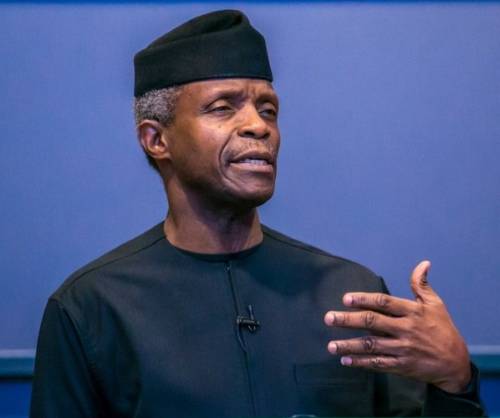Vice President Yemi Osinbajo has stressed the need for African governments to adopt the right type of macroeconomic and industrial policy actions to create an environment in which businesses can thrive.
The vice president stated this at a high-level roundtable on Industrialization in Africa to commemorate the 50th anniversary of the Manufacturers Association of Nigeria (MAN).
- Jos crisis: Call for sack of GOC 3 division distraction to peace in Plateau – Army
- 2023: PDP and the task of zoning
He also stressed that policies like tariffs, quotas, subsidies, and non-tariff barriers are vital to protect the infant industries to enable learning and create jobs.
The VP further pointed out that well-negotiated rules of origin are important in the context of the free trade agreement as they are key to preventing trans-shipment and the deflection of trade.
He called on MAN to involve itself in an advisory capacity to government negotiators as the rules of origin negotiations go further.
The Minister of Industry, Trade and Investment, Otunba Niyi Adebayo mentioned that Africa, according to the African Development Bank (AfDB) is at the bottom of the global value chain due its less than two percent share of global manufacturing.
This, he said implies that the processing of raw materials on the continent is low, leading the continent to lose out on job opportunities, larger export trade volumes and increased foreign exchange earnings.
Director General of MAN, Ajayi Kadiri, described industrialization as critical to the structural transformation of the continental economy; adding that the AfCFTA is expected to provide the vehicle for fast-tracking industrial development.
“With AfCFTA, there will be opportunities for wider utilization of the resource endowments of the continent, efficient production system and competitiveness enhancement.”

 Join Daily Trust WhatsApp Community For Quick Access To News and Happenings Around You.
Join Daily Trust WhatsApp Community For Quick Access To News and Happenings Around You.


